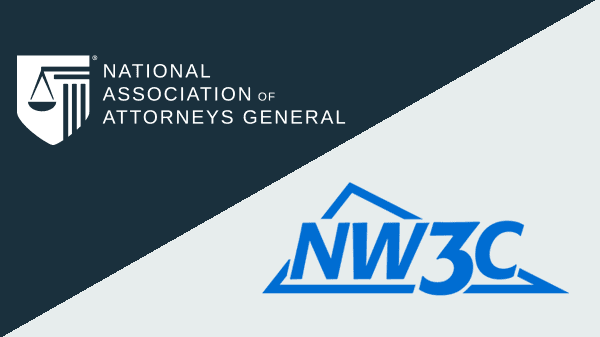On Jan. 17, 2017, Josh Shapiro was sworn in as the 50th Pennsylvania attorney general. Since his first day in office, Attorney General Shapiro has championed an ambitious agenda to restore the integrity of the office, which was significantly damaged by the actions of the previously elected attorney general.1 Attorney General Shapiro quickly and effectively re-established the missions and priorities of the agency and worked diligently on correcting many ills, both internal and external, that the office had suffered in recent years.
A key part of Attorney General Shapiro’s integrity agenda was to create the position of chief integrity officer (CIO). From the start, he clearly communicated the message that ethics and integrity are central to all we do. Attorney General Shapiro said he believed the CIO should quite literally be integral, that is, consulted on major and minor operational issues when appropriate.
Defining the Position
As the attorney general’s office (AGO) has never before had an integrity officer, we looked to define it by reviewing the roles filled by integrity officers in other institutions; mostly in medical and academic settings. Such positions do exist, are few (but growing) in number, and are notably on the rise in government. From venue to venue they vary in scope and complexity, but at their core, most integrity officer positions consistently involve two core functions: (1) handling more traditional tasks such as reporting, auditing, and investigating ethical or operational noncompliance; and (2) assessing, maintaining, and engaging in education to actively promote a culture of ethical awareness.
For both budgetary and operational reasons, the CIO in Pennsylvania’s AGO serves as chief of the Office of Professional Responsibility (OPR). Logically, the CIO is responsible for the activities of the Office’s Internal Affairs and background investigation units and oversees an excellent staff of nine employees. In this capacity, the CIO reports to our first deputy attorney general. Importantly though, in all matters related to cultural change, including creation and delivery of ethics training for our agency, he reports directly to the attorney general.
In addition, Attorney General Shapiro said up front that he wanted his integrity officer to serve as a person to whom staff can go to talk when they feel aggrieved or unsure about certain situations in the office. As an institution, the AGO is steeped in the “chain of command” tradition and, thus, already had typical avenues of redress for internal concerns and complaints. The CIO does not supplant these functions, but rather is available as a confidant for some employees who prefer to seek direction more discreetly.
It is natural to avoid one’s normal chain of command when the issue exists within that chain. Some staff are unsure whether they may want to pursue a formal grievance or complaint and, perhaps, need to talk things through. We promote the integrity officer as this additional resource because we understand there is value in having the conversation and fostering a greater spirit of cooperation while avoiding unnecessary confrontation.
Candidly, it is interesting to note as well that many times staff might not want something to come to the attention of the front office. But if the same or similar matters surface in multiple places within the agency, the CIO’s bird’s eye perspective can help to address and correct more systemic problems, large or small, that might not otherwise come to light for some time.
Assessing Institutional Integrity
From my first days on the job, I set out to assess just how deeply the AGO was adversely affected by the recent scandal. Some employees were ready and eager to talk, while others were predictably very guarded. In my first few months, I walked through our headquarters in Harrisburg and visited all 13 additional satellite offices, meeting and talking with many, many staff and learning the scope of the internal trauma from the previous administration.
It is important to acknowledge that the agency suffered great internal damage to both its mission and morale. It also suffered externally from a dramatic decline in reputation, resulting in our natural partners in law enforcement becoming significantly less eager to work with the AGO. These dynamics greatly derailed many collaborative relationships, but the agency’s resilience has far outpaced the weighty burden of scandal.
In fact, the bulk of what the Pennsylvania AGO was, is, and continues to stand for, has remained solidly intact, thanks to its very dedicated employees. The overwhelming majority of employees were, of course, not at fault for the scandal. It was, as the Journal of Leadership Education has observed in similar dynamics from other organizations, “top officials” who “abused their power and privileges, manipulated information . . . and put their own interests above those of their employees and the public . . . .2 Admirably, through this adversity, the truly hard-working employees of the AGO, day-in and day-out, maintained their ideals and stayed true to the agency’s mission. This is the strong foundation of the AGO, and this is what has most impressed me in my first 16 months here. We have incredibly dedicated and talented employees at all levels who genuinely embody what is best in public service.
The CIO Dynamic at Work
As chief integrity officer, I would be remiss if I did not start by recognizing my own excellent staff who tirelessly offer their efforts, talents, and candor in our mutual pursuit of institutional integrity. Their professional commitment to excellence is highly praiseworthy and their support is that much more appreciated!
As CIO, I am involved in a wide array of AGO work and consulted and involved somewhat regularly in the more routine administrative issues which arise or processes which occur within the agency. I weigh in on matters raised by Attorney General Shapiro and his senior staff, by the Criminal and Civil Divisions, by the Human Resources office, by the Equal Employment Opportunity officer, and by our Public Protection and Education & Outreach Divisions. I have as much regular interaction with our Human Resources and Information Technology staff as with our Agent Command and Executive Office. In this sense, the CIO truly is integral in AGO operations.
More traditionally, I have discussed and advised colleagues on how best to proceed in dealing with litigation opponents whose actions bordered on professional misconduct. We take our responsibility to self-police the profession very seriously, of course. And, as you would expect, I am also available to advise staff on ethical conflicts as they arise and have excellent consultants at hand in our Civil and Consumer Protection divisions with whom I have healthy, in-depth ethics discussions.3
As integrity officer, I also review policy initiatives and actively provide input on both form and substance. Many sets of eyes look over our policy initiatives and having a working knowledge of legislative drafting has definitely come in handy. At times, the matters we discuss lead to assessments of not just whether the agency can do something in a given way, but whether the agency should do something in a given way.
Early on, we reviewed and changed our internal procedures to address shortcomings of previously adopted practices. In one instance, we created an important check-and-balance procedure for certain computer access whereby we have ensured that no single person can exploit the privilege of gaining computer email access without the appropriate verification from a second authority.
In another, we corrected what seemed like a small deficiency, but was equally important from an integrity standpoint. The AGO had asked certain employees to complete signature cards for necessary fiscal functions of the agency, but it had never really explained the fiduciary relationship these employees were entering. We now communicate the AGO’s policy regarding delegation of signatures and the nature of the stewardship and responsibility being undertaken by those who sign more clearly and succinctly to our employees so that they clearly understand the legal and ethical parameters of their important roles.
Promoting the Cultural of Integrity
On May 2, 2017, I had the privilege of addressing the entire AGO attorney corps (200 employees). With the attorney general and his executive staff in attendance, I proposed a program I believed would best build progressively towards restoring institutional integrity from within. As an institution, the AGO has not been alone in dealing with recent scandals. Other Pennsylvania institutions, legislative, judicial, and corporate, have also suffered through scandal and the trauma which inevitably followed. Scandals “present an opportunity for a system to confront its weaknesses and take corrective action.”4 So setting about to restore our institutional integrity, we are learning from steps others have taken and are actively implementing a progressive agenda.
That program has included: a mutual pledge to our ideals embodied in a Code of Conduct, a productive re-evaluation of policies, encouragement of greater internal reporting, and instituting “preventive maintenance” by requiring full attendance at mandatory ethics sessions, along with active oversight for achieving full compliance.
A basic tenet of our ethics training acknowledges that we incorporate this into our culture, not because we are unethical, but rather to continually raise our collective level of ethical awareness. I continually emphasize that we talk about concepts that most of us know and understand and ideals we have adopted and hold sacred, but about which we may not speak very often.
Since May 2017, we have held 45 separate training sessions, covering topics on public service, restoring institutional integrity, portions of the Sarbanes-Oxley Act and U.S. Sentencing Guidelines for ethics programs, the Pennsylvania State Ethics Act and AGO’s Gift Ban Policy (including improper influence & impermissible honoraria), and considerations relating to cheating and being “always on.” The next series of educational sessions will cover communication, accountability, greater reputation, and assistance programs such as the Pennsylvania State Employees’ Assistance Program (SEAP), and Lawyers Concerned for Lawyers (LCL). The latter part of this presentation is an affirmative step we can take in furtherance of the ABA House of Delegates’ recent adoption of its Lawyer Well-Being Resolution this past February.5
In addition to regular classes for staff, the integrity officer conducts a program at every incoming New-Agent Orientation. And, beginning in May of this year, we are instituting a mandatory one-hour ethics session required of every newly hired AGO employee.
Plans for Automation
The AGO is a complex and interdependent agency. Often, scheduling challenges from investigations and court dates will prevent an entire satellite office from being present at the first class of a new training session. We are planning to institute an automated delivery program so ethics training can occur at the employee’s convenience. Our I.T. department fortunately has the groundwork to build an agency-appropriate ethics training library in an online environment (SharePoint software application) which is already partially utilized by the agency.
The online environment already includes documents of interest to various personnel factions within the agency (agents/administrative/attorneys) to promote sharing of relevant printed matter to each group. When it is complete, it is will house a video library both on required topics to be viewed by a given deadline and on “elective” topics which can be perused as desired. Computer coding will track when videos are begun and completed for compliance purposes. Then, an updated “transcript” of all online ethics programs completed will be available to the employee and to the CIO on demand to verify individual and agency-wide compliance.
Even though we are moving to this automated environment, I will always plan to deliver some classes in person. Although this means many more trips to different parts of our very large Commonwealth, I have found there is great value in meeting and reconnecting with as much of our staff as possible in person. Staying visible has helped to reinforce that ethics and integrity remain a high priority for Attorney General Shapiro.
The emphasis on top-down ethical leadership started on day one and has been crucial to our success. We are building our program and reinforcing our emphasis on ethics and integrity with sound decision-making, substantive education, active listening, and promoting accountability.
And as I have advised our staff on multiple occasions, we are repairing and building AGO’s institutional reputation, like we build our personal reputations: each day, every day.
Endnotes
- Former Pennsylvania Attorney General Kathleen Kane was indicted in August 2015 on nine criminal counts including perjury, abuse of office, and obstruction of justice. She was convicted a year later on all charges, resigned from office, and was sentenced to 10-23 months of state incarceration which sentence, as of this writing, remains on appeal.
- Craig E. Johnson, Enron’s Ethical Collapse: Lessons for Leadership Educators, 2 J. Leadership Educ. (2003), http://www.journalofleadershiped.org/index.php/issues/vol-2-iss-1.
- My sincere thanks to Executive Deputy Attorney General Jonathan Scott Goldman, Chief Appeals Deputy Attorney General James Barker and Senior Deputy Attorney General John Abel, Esq. with whom I confer regularly on legal conflict matters small and large. Attorney Abel is a co-author of the PA Ethics Handbook published by the Pennsylvania Bar Institute in cooperation with the PA Bar Association’s Committee on Legal Ethics and Professional Responsibility.
- Report and Recommendations for Improving Pennsylvania’s Judicial Discipline System, Pennsylvanians for Modern Courts (Apr. 2017), https://www.pmconline.org/uploads/1/0/8/8/108820081/2017_pmcreport_errata.pdf.
- See ABA, Resolution and Report Adopted February 5, 2018 in Support of the Goal of Reducing Mental Health and Substance Use Disorders and Improving the Well-Being of Lawyers, Judges and Law Students, https://www.americanbar.org/content/dam/aba/images/abanews/mym2018res/105.pdf.





